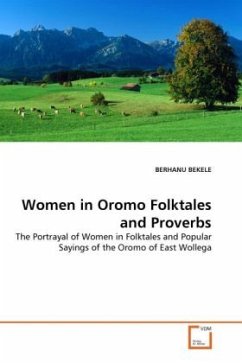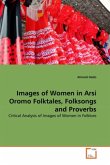Proverbs are the significant aspects of everyday
communications of African peoples. However, these
social and cultural treasures of the various ethnic
groups of the continent have not been studied and
publicized properly. This work is a contribution to
the attempt to develop research and publication of
African folklore. It is based on the data collected
through fieldwork carried in Guji-Oromo Society in
southern Ethiopian from where materials of proverbs
were recorded along with the active social and
cultural contexts of interactions. What makes the
contents of this work different from other
publications in folklore is that it embodies the
functions and meanings of proverbs in particular
contexts of social interactions among people with
rich oral traditions. The communicative power of
proverbs and the relevance of their meaning in
regulating the established norms and values as well
as knowledge and philosophy of the Guji-Oromo
society are well demonstrated. The work is
significant for researchers, students and readers in
Folklore, Social Anthropology, Literature,
Sociology, Cultural Studies, Sociolinguistics,
philosophy and Social psychology.
communications of African peoples. However, these
social and cultural treasures of the various ethnic
groups of the continent have not been studied and
publicized properly. This work is a contribution to
the attempt to develop research and publication of
African folklore. It is based on the data collected
through fieldwork carried in Guji-Oromo Society in
southern Ethiopian from where materials of proverbs
were recorded along with the active social and
cultural contexts of interactions. What makes the
contents of this work different from other
publications in folklore is that it embodies the
functions and meanings of proverbs in particular
contexts of social interactions among people with
rich oral traditions. The communicative power of
proverbs and the relevance of their meaning in
regulating the established norms and values as well
as knowledge and philosophy of the Guji-Oromo
society are well demonstrated. The work is
significant for researchers, students and readers in
Folklore, Social Anthropology, Literature,
Sociology, Cultural Studies, Sociolinguistics,
philosophy and Social psychology.








